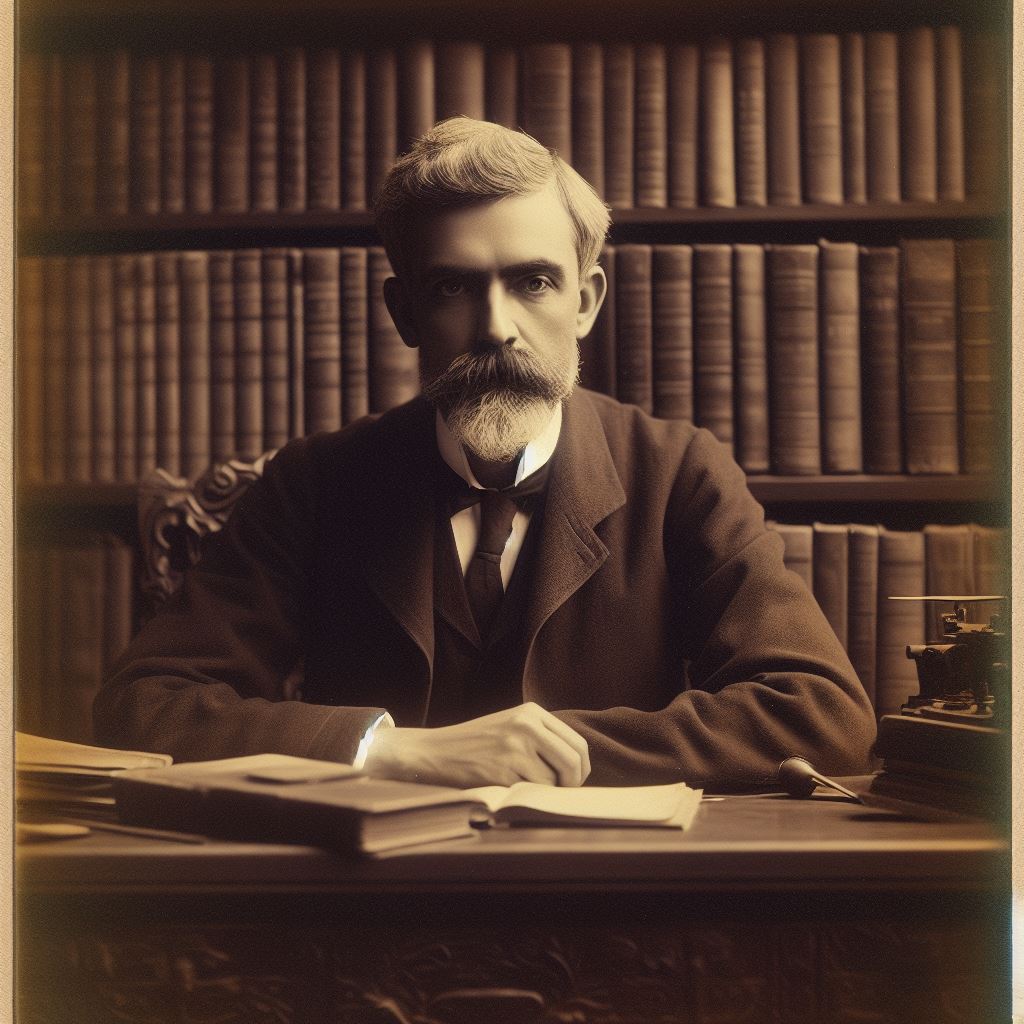Introduction
School counseling in the US plays a crucial role in supporting students’ academic, social, and emotional development.
It ensures students have the necessary tools and resources to succeed in their education.
This blog post examines the evolution of school counseling in the US, discussing its transformation over time to address the changing needs of students.
The role of school counselors has undergone a remarkable transformation over the past century, mirroring the ever-evolving needs of students and the complexities of the modern educational landscape.
From its humble beginnings as a vocational guidance program, school counseling has blossomed into a comprehensive and multifaceted profession, encompassing a wide range of services designed to foster academic achievement, personal growth, and social-emotional well-being.
In this blog post, we embark on a journey through time, tracing the evolution of school counseling in the United States.
We’ll explore the historical milestones, societal shifts, and educational trends that have shaped the profession, ultimately revealing the dynamic role of school counselors as indispensable partners in the holistic development of today’s learners.
Early History of School Counseling
Origins of School Counseling in the Late 19th Century
In the late 19th century, the foundations of school counseling were laid, influenced by societal changes.
Immigration, industrialization, and urbanization resulted in increased social, emotional, and educational needs among students.
Frank Parsons, known as the father of school counseling, pioneered the vocational guidance movement.
Parsons believed in aligning students’ talents and interests with appropriate career choices to foster success.
Emergence of Vocational Guidance and Character Education
Vocational guidance gained prominence during this period, helping students make informed career decisions.
School counselors played a crucial role in providing guidance, helping students explore various job opportunities.
The concept of character education also emerged, emphasizing moral values, ethics, and personal development.
School counselors worked alongside teachers to instill character traits such as honesty, respect, and responsibility.
Primary Focus on Career Development during this Period
The primary focus of school counseling during this period was on career development.
Students received vocational testing, career exploration resources, and guidance on future job prospects.
Counselors aimed to align students’ skills and interests with suitable career paths for long-term success.
This period marked a shift towards career preparation and development rather than merely academic guidance.
Limited Role of Counselors and Integration into the Educational System
During this early history, school counselors had limited duties and were not widely recognized.
Transform Your Career Today
Unlock a personalized career strategy that drives real results. Get tailored advice and a roadmap designed just for you.
Start NowThey were often teachers or administrators who provided counseling services on a part-time basis.
Counselors were primarily focused on preparing students for vocation and did not address personal or social issues.
Despite this limited role, counselors were slowly integrated into the educational system, gaining more recognition over time.
In summary, the origins of school counseling can be traced back to the late 19th century.
This period marked the emergence of vocational guidance and character education.
Career development became the primary focus, emphasizing matching students’ talents with appropriate career choices.
Although counselors had limited roles and integration into the educational system, their importance gradually grew.
The early history of school counseling laid the foundation for its evolution into the comprehensive field it is today.
Read: Digital Libraries and Databases: US Librarians at the Forefront
Development of Comprehensive School Counseling Programs
The major changes in the mid-20th century regarding school counseling
During the mid-20th century, school counseling underwent significant transformations. Previously, school counselors focused mainly on vocational guidance. However, there was a realization that students needed more comprehensive support.
Recognizing the importance of addressing the academic, career, and personal/social needs of students, school counseling expanded its scope.
As a result, school counselors became essential in helping students navigate not only their career paths but also their personal and social lives within the school setting.
The mid-20th century brought about a shift from a narrow vocational approach to a more inclusive and holistic role for school counselors.
The influence of significant historical events on school counseling practices
Various historical events played a crucial role in shaping school counseling practices. For instance, the Civil Rights Movement emphasized equality and access to educational opportunities for all students.
This movement led to the establishment of federal programs and initiatives, such as the Elementary and Secondary Education Act, which aimed to provide equal educational opportunities for marginalized students.
These initiatives acknowledged the importance of school counselors in assisting students from diverse backgrounds and advocating for their academic and personal growth.
Additionally, the landmark decision in the Brown v.
Board of Education case highlighted the need for desegregation in schools, further emphasizing the significance of school counseling in promoting diversity and inclusion.
The shift towards a comprehensive approach that encompassed academic, career, and personal/social domains
In response to the evolving needs of students, school counseling shifted towards a comprehensive approach.
This approach recognized that students require support not only in their academic pursuits but also in their personal and social development.
Transform Your Career Today
Unlock a personalized career strategy that drives real results. Get tailored advice and a roadmap designed just for you.
Start NowBy addressing all three domains – academic, career, and personal/social – school counselors aimed to promote overall student success and well-being.
The comprehensive approach emphasized the importance of helping students develop a solid academic foundation while also preparing them for future careers.
Furthermore, it recognized the crucial role of school counselors in addressing students’ personal and social challenges, such as mental health issues, social-emotional skills, and interpersonal relationships.
Address the introduction of guidance curricula and standardized assessments
With the shift towards a comprehensive approach, the introduction of guidance curricula became essential in supporting students’ holistic growth.
Guidance curricula provided a structured framework for school counselors to address students’ academic, career, and personal/social development.
These curricula incorporated various elements, such as career exploration, goal setting, study skills, and conflict resolution strategies.
Additionally, the integration of standardized assessments allowed school counselors to gain a better understanding of students’ strengths and weaknesses, informing their guidance and support strategies.
These assessments provided valuable data, enabling school counselors to tailor their interventions and assist students in making informed decisions about their future pathways.
In general, the mid-20th century marked a significant turning point for school counseling, with major changes in the role and approach of school counselors.
Historical events and societal shifts influenced the expanded scope of school counseling practice, leading to a more comprehensive and inclusive support system for students.
The introduction of guidance curricula and standardized assessments further enhanced the effectiveness of school counseling in addressing the diverse needs of students.

Professionalization of School Counseling
Efforts to professionalize school counseling in the 1970s and 1980s
- During the 1970s and 1980s, there were significant efforts to professionalize school counseling.
- These efforts aimed to improve the quality and effectiveness of school counseling services.
- The focus was on establishing specific standards and criteria for professionalism in the field.
- School counselors started being recognized as key players in promoting student success.
Creation of professional organizations and credentialing bodies
- The professionalization of school counseling led to the creation of professional organizations.
- Organizations like the American School Counselor Association (ASCA) and the National Association for College Admission Counseling (NACAC) emerged.
- These organizations provided a platform for school counselors to collaborate and share best practices.
- Credentialing bodies, such as the National Board for Certified Counselors (NBCC), established certification programs for school counselors.
Importance of developing ethical standards and professional competencies
- As school counseling became professionalized, the development of ethical standards was seen as crucial.
- Ethical standards ensure that school counselors adhere to professional guidelines and protect the rights of students.
- Professional competencies like effective communication skills and counseling techniques also became essential.
- Developing these competencies ensures that school counselors are equipped to support students effectively.
Impact of professionalization efforts on the field of school counseling
- The professionalization of school counseling has positively impacted the field in various ways.
- It has elevated the status of school counselors as professionals with specialized skills.
- Professionalization has helped improve the overall quality of school counseling services.
- School counselors now have access to continuing education and professional development opportunities.
- The establishment of credentialing bodies and certification programs has provided recognition and validation for school counselors.
- Ethical standards have improved the ethical practice of school counseling, ensuring students’ well-being.
- Collaboration among professionals through organizations has fostered the exchange of knowledge and ideas.
- Professionalization has also led to increased advocacy for the importance of school counseling in education.
The professionalization of school counseling in the 1970s and 1980s brought positive change to the field.
Efforts to establish standards, create professional organizations, develop ethical standards, and emphasize professional competencies have elevated the role of school counselors and improved the quality of their services.
The impact of professionalization can be seen in the recognition, validation, and enhanced professional development opportunities available to school counselors today.
It has also facilitated collaboration and advocacy, ensuring that school counseling plays a vital role in supporting students’ academic and personal success.
Read: Networking and Professional Associations for US Librarians
Current Trends and Challenges in School Counseling
Ongoing Challenges Faced by School Counselors
- Limited resources and heavy caseloads make it challenging for school counselors to provide individualized support.
- Lack of time dedicated to counseling due to administrative duties and standardized testing requirements.
- Inadequate funding and budget cuts result in reduced counseling staff and program offerings.
- Addressing the diverse needs of students, including those with disabilities, English language learners, and at-risk youth.
Increasing Demand for Comprehensive Mental Health Services in Schools
- Rising rates of mental health issues among students necessitate the need for effective and accessible counseling services.
- School counselors are playing a crucial role in identifying and addressing mental health concerns early on.
- Collaboration with community mental health providers to enhance support for students with significant mental health needs.
The Role of Technology in School Counseling Practices
- Technology offers new opportunities for school counselors to reach and engage students.
- Online counseling platforms provide accessible mental health services for students in remote areas.
- Use of digital tools for assessments, career exploration, and college planning enhances counseling effectiveness.
- Ethical considerations regarding privacy, data security, and potential disparities in access to technology-based services.
Importance of Advocacy and Systemic Change in the Field
- Advocacy is crucial to ensure that school counseling programs receive necessary funding and support.
- School counselors must advocate for appropriate ratios of counselors to students to provide adequate services.
- Promoting systemic change to address underlying factors impacting student well-being and academic success.
- Collaboration with stakeholders, including parents, educators, and policymakers, to influence policy and practice.
Therefore, school counselors face ongoing challenges in providing effective support due to limited resources, heavy caseloads, and administrative duties.
The increasing demand for comprehensive mental health services highlights the critical role of school counselors in identifying and addressing students’ mental health needs.
Technology has revolutionized counseling practices, offering new opportunities and considerations.
Advocacy and systemic change are vital to ensure the necessary support and resources for school counseling programs.
Transform Your Career Today
Unlock a personalized career strategy that drives real results. Get tailored advice and a roadmap designed just for you.
Start NowDespite these challenges, school counselors remain dedicated to promoting the well-being and success of students.
Read: The Ethics and Morality of Librarianship in the USA
The Future of School Counseling
Emerging trends and innovations in the field
- Implementation of technology in counseling sessions to reach a wider student population.
- Utilization of data-driven approaches to identify areas of improvement and create targeted interventions.
- Integration of social-emotional learning into the school counseling curriculum.
- Development of online counseling platforms to provide accessibility for remote students.
- Expansion of school counseling services to include career exploration and readiness.
Address the importance of staying up-to-date with research and best practices
- Continuous professional development to enhance counseling skills and stay informed about new interventions.
- Adapting to changes in the education system and understanding their impact on student well-being.
- Gaining knowledge about evidence-based practices to ensure the effectiveness of interventions.
- Engaging in research to contribute to the growth and improvement of the school counseling profession.
- Collaborating with colleagues to share insights and stay updated on best practices.
The potential impact of ongoing educational reforms and policy changes on school counseling
- Increased emphasis on mental health support due to the recognition of its crucial role in academic success.
- Integration of comprehensive school counseling programs into the fabric of educational policies.
- Alignment of counseling initiatives with state standards and accountability measures.
- Enhanced collaboration between school counselors and teachers to address specific student needs.
- Adjustments in counseling practices to accommodate diversity, inclusion, and equity requirements.
The importance of collaboration between school counselors and other stakeholders
- Collaboration with parents to create a supportive home environment and reinforce counseling efforts.
- Working with administrators to advocate for comprehensive counseling programs and sufficient resources.
- Partnering with community organizations to provide additional support for students.
- Coordinating efforts with teachers to ensure a cohesive approach to student development.
- Consulting with mental health professionals to address complex student issues and referrals.
Read: Diversity in School Counseling: Bridging Cultural Gaps
Conclusion
this blog post has highlighted the evolution of school counseling in the US.
It has emphasized the importance of school counseling in supporting student success.
As we wrap up, it is important to acknowledge the continuous evolution of school counseling in the US.
With changing educational landscapes and the diverse needs of students, school counseling must continue to adapt and grow.
School counseling has undergone a remarkable transformation over the past century, mirroring the evolving social, economic, and educational landscape of the United States.
From its initial focus on vocational guidance, the field has expanded to encompass a comprehensive approach to student well-being, addressing academic, personal, and social concerns.
As we move forward, school counselors must continue to adapt and innovate, embracing emerging trends and technologies to effectively support the diverse needs of today’s students.
By fostering collaboration among educators, families, and community partners, school counselors can play a pivotal role in ensuring that all students have the opportunity to thrive and reach their full potential.
The evolution of school counseling is an ongoing journey, one that demands continuous adaptation, growth, and a unwavering commitment to empowering students to succeed.
[E-Books for Sale]
The Big Book of 500 High-Paying Jobs in America: Unlock Your Earning Potential
$19.99 • 500 High-Paying Jobs • 330 pages
Explore 500 high-paying jobs in America and learn how to boost your career, earn more, and achieve success!
See All 500 High-Paying Jobs of this E-Book
1001 Professions Without a Degree: High-Paying American Jobs You Can Start Now
$19.99 • 1001 Professions Without a Degree • 174 pages
Discover 1001 high-paying jobs without a degree! Unlock career tips, skills, and success strategies for just $19.99!




